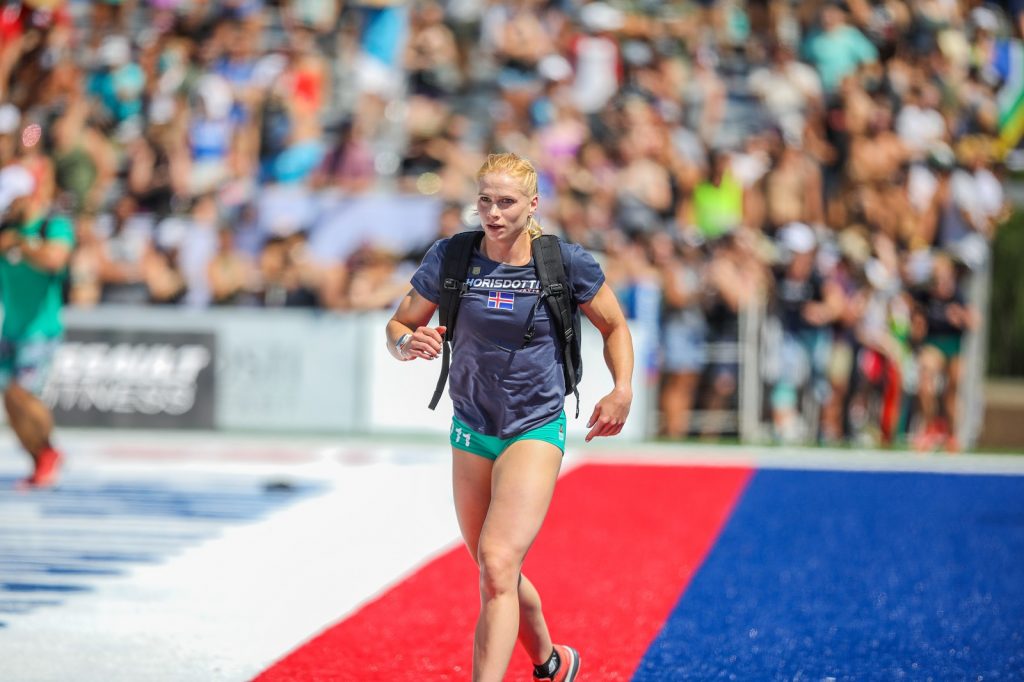The Fittest is the new film created by the Buttery Bros (Heber Cannon and Marston Sawyers), two members of the media team that narrated the CrossFit Games between 2014 and 2017. To do so, they’ve used several story lines:
- Rich Froning becoming the first athlete to win 4 back-to-back individual titles (2014)
- Ben Smith and Katrin Davidsdottir sitting on the throne for the first time (2015)
- Davidsdottir defending her title in a heated battle with Tia-Clair Toomey and Mat Fraser beginning his rule as the heir to Froning’s throne (2016)
- Toomey’s redemption after a disappointing 2nd place in 2016 and Fraser’s utter dominance with another gold medal (2017)
This year, the perfect plot presented itself thanks to Greg Glassman and Dave Castro: changes in the qualifying process, major cuts and variations of the point system. So, Cannon and Sawyers were struck with a question: with all these changes, will the Games still succeed at finding the fittest woman and man on Earth?
I’ll leave that up to one of the other thousand people who’ve shared their opinions on the internet. I want to focus on the psychological mechanisms underlying the athletes’ testimonies, more specifically, perceived control and coping.
CrossFit: the realm of uncertainty
The “Sport of Fitness” is young but ever since the first edition in 2007 it has grown exponentially. From the get-go, founder Greg Glassman made it abundantly clear that “the unknown and the unknowable” was the cornerstone of CrossFit programming as it would yield the best results in our fitness.
Aside from being a wonderful marketing tool, this notion turned the fitness world upside down. The possibility of improvising routines to better prepare for the unknown has brought millions of individuals back to the gym all over the world; and I couldn’t be happier!
However, this apparently irrelevant piece can cause a real commotion when we consider elite-level competition in CrossFit. Having professional athletes juggle their lives on a daily basis to adjust to an everchanging environment in the sport, calls for well-oriented perceived control and adaptive coping strategies; these traits were showcased (or not) at the 2019 CrossFit Games.
The mediating effects of perceived control
Uncertainty is a constant in our interaction with the environment and in spite of being heavily exposed to it, some of us still struggle to tolerate it. In the absence of proper appraisal of uncertainty, some negative emotions may surface and tamper our athletic performance.
And I’m afraid I’ll be using Pat Vellner as a scapegoat, granted I’m well aware that Cannon and Sawyers probably used the “juicier” parts of his commentary for dramatic effect. And who’s the blame them? The canadian athlete had no issues expressing his opinions about the cuts and programming for the Games.
Regardless of him being right or wrong criticizing the cut being placed on a sprint, programming “Mary” for the Games or leaving the “typical CrossFit” for the very end, what really disquiets me is this antagonistic perspective. Here’s a tremendously capable athlete who’s been on the podium 3 out of 4 Games’ appearances. He usually benefited from the uncut format of the Games to gradually climb the leaderboard. Once he was stripped from that possibility and forced to perform from the beginning, he went from being the 2nd “Fittest Man on Earth” in 2018 to coming 16th worldwide.
Is he suddenly out of shape? Of course not. Dave Castro is just continuously looking for ways to throw athletes off their game-plan; and that’s an uncontrollable factor. Any energy used to criticize decisions made by CrossFit HQ is energy that could be used to fix his slow starts in competitions. Will it help to complain about Ohlsen’s sled going faster than his? Will it earn him extra points to say Mary is “silly” for the Games because taller athletes will have a harder time? Of course not.

“It frustrates me and I’m disappointed, but I also know I shouldn’t have been in that situation anyways.”
Annie Thorisdottir on being cut.
Here’s how perceived control exerts a mediating effect on the efficacy of coping strategies. The only thing an athlete can really control is their own actions: what their training looks like, how they sleep, what they eat, how they recover. Any element that falls out of their control must be disregarded. It shouldn’t be consuming personal resources that, as we know, are limited.
In another article, we saw that Fraser is truly world-class when it comes to perceived control. His poor cardio kept him out of the Games in 2013; he’s never been out of the top 20 at endurance events ever since. In 2015 he made a fool of himself in both sprinting events; the following year he came in 2nd in the sprint. He knew he had the potential to perform these tasks which allowed him to solve the problem and adequately manage these sport-specific stressors.
How important is it to learn proper coping?
Those who’ve stayed in the game long enough share common traits and the one that truly stands out for me is their ability to manage the uncertainty of the unknown and unknowable. Not knowing if you have to show up at 3:30 AM to go to the Ranch for day one of competition or if landing out of the top-10 in a sprinting event will cut you from the Games, is part of elite-level CrossFit. If you don’t learn to cope with this stressors without it hindering your performance, you won’t be around for long.
Greg Glassman and Dave Castro have a very singular view for the CrossFit Games and they’re not buying into anybody’s criticism; they love the theatrics and want to put up a good show. Athletes who fail to follow these premises, should learn to place their locus of control accordingly or get cut trying.
